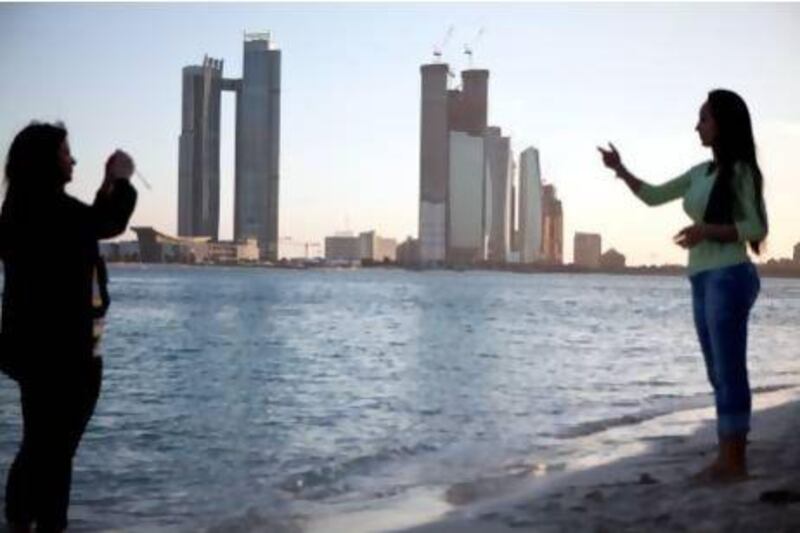The quarterly number of licences issued by the Abu Dhabi Department for Economic Development has risen for the first time in a year, according to the department.
Figures released by the government body show that a total of 1,947 licences were granted to new businesses in the first three months of 2013. The figures include commercial and professional licences. That is an increase of 8 per cent on the 1,801 licences issued in the previous quarter, but less than the 2,161 new licences that were granted in the first quarter of 2012. It is also well below the number of licences handed out three years earlier, figures from the department show. In the first three months of 2010, a total of 2,781 businesses were licensed.
"The emirate experienced an increase in the number of new commercial licences issued for business and professional activities and rising rates of employment compared to 2011," the department said.
Trade figures also released yesterday by the department show that the emirate's exports rose 4.4 per cent, or Dh37 million.
Overall trade volumes declined by about 12.5 per cent in January as the value of goods traded dropped by Dh1.4 billion. Most of this decline came in imports, as the value of goods entering the country fell by Dh1.3bn.
The emirate's Government has played a key role in promoting demand and investment in Abu Dhabi. One area in which the emirate has invested heavily is the infrastructure needed for industrial development, and last December it inaugurated the multibillion-dollar Khalifa Industrial Zone (Kizad) in Taweelah.
According to figures from the Higher Corporation for Specialised Economic Zones (ZonesCorp), spending on industrial projects in Abu Dhabi amounted to Dh22bn last year. Last month, Kizad's chief executive Khaled Salmeen Al Kuwairi said 34 per cent of land in the industrial zone had been leased, up from 27 per cent at the end of last year.
Increasing numbers of licences are linked to growth in other important economic sectors, according to the DED. Hotel occupancy in the first quarter was boosted by events such as Abu Dhabi Sustainability Week in January, and the number of guests visiting the emirate's hotel's increased by 3 per cent on the year. Occupancy rates rose to 70 per cent.
The price of Murban crude, Abu Dhabi's oil benchmark, dropped 7 per cent in the first quarter, said thedepartment. Nevertheless, the Government has committed to a spending plan worth Dh330bn over the next five years, aimed at improving the emirate's infrastructure. The plan will "boost partnership with the private sector in the process of development; [it will] stimulate economic activity, contribute effectively to the development and improvement of services for businessmen and investors and improve the investment environment," said the department.





